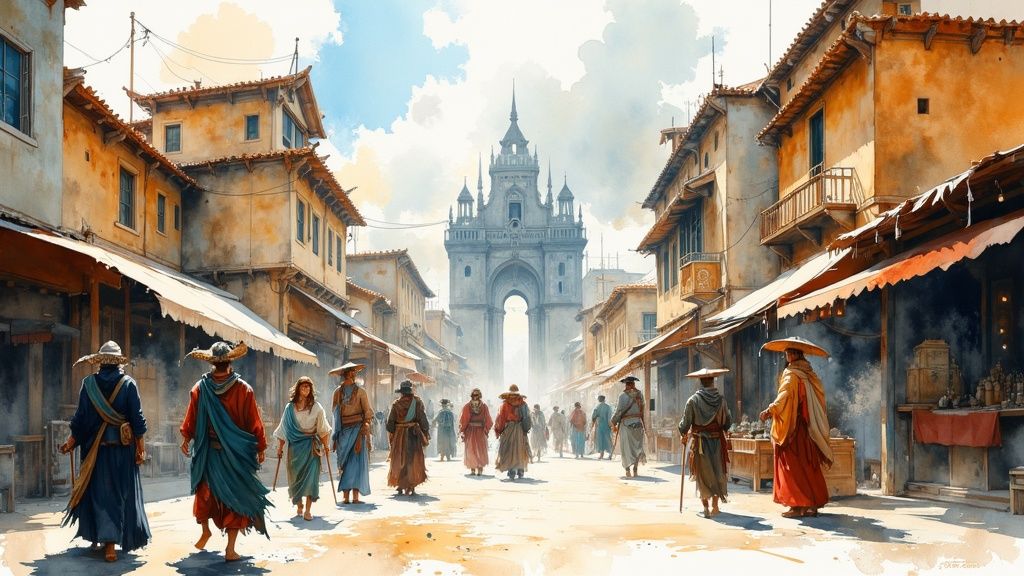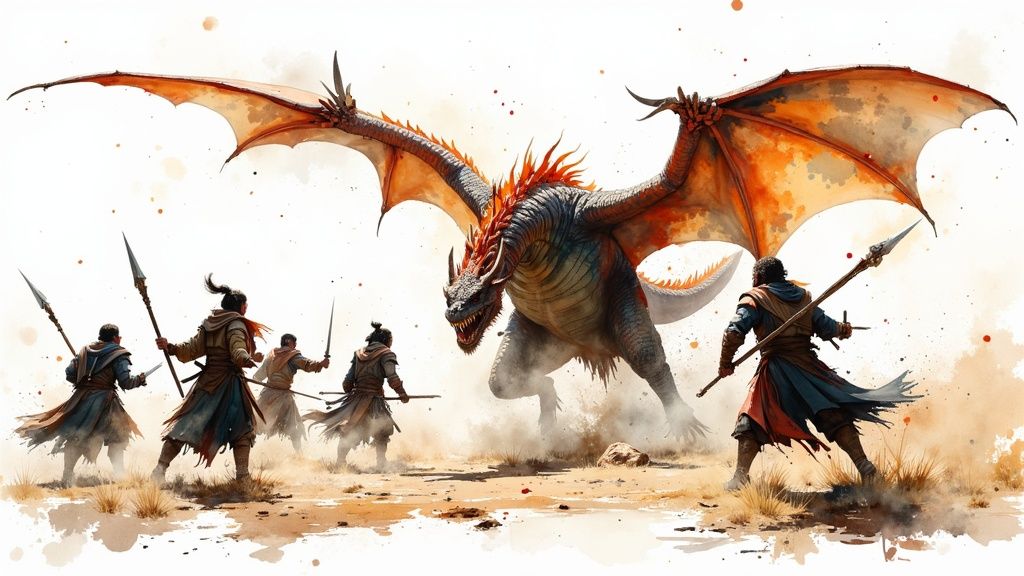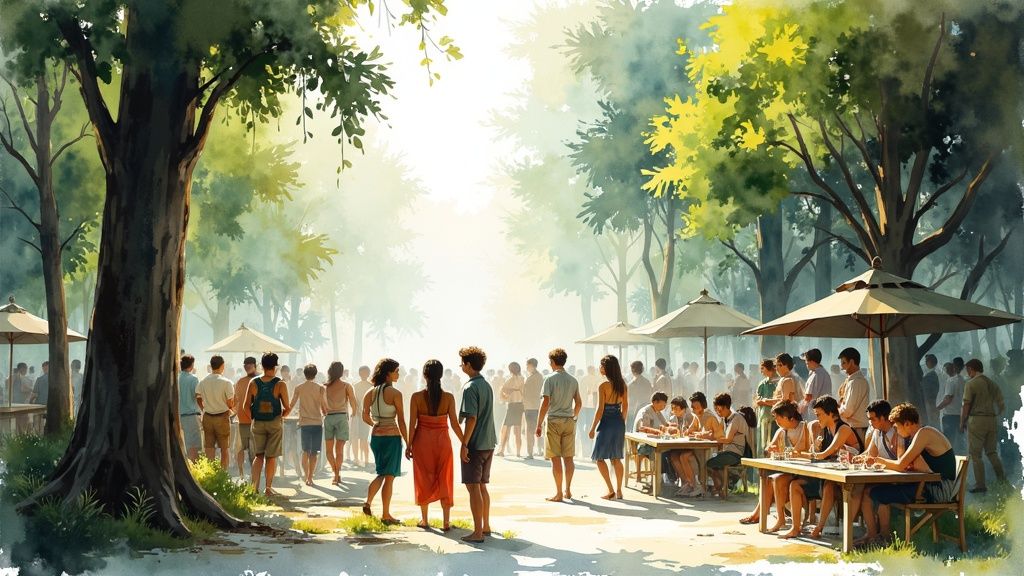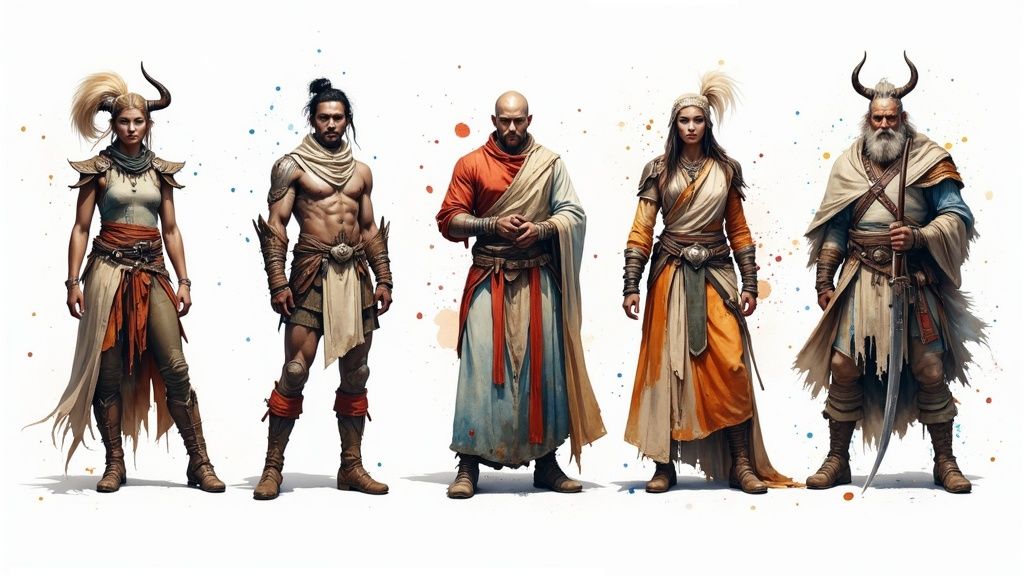




MMORPGs (Massive Multiplayer Online Role-Playing Games) have come a long way from their origins. The games we play now feature rich, immersive worlds that draw players in with their depth and complexity. Technology advances have enabled game developers to push boundaries in ways previously unimaginable.
Modern MMORPGs excel at creating engaging environments through high-quality graphics, weather effects, and realistic physics engines. Game developers continuously refine gameplay mechanics to keep players invested in these virtual realms.
The market data reflects this growth in both scale and sophistication. Current valuations place the MMORPG market at USD 31.26 billion as of 2023. Projections indicate a CAGR of 8.28% from 2024-2030, with the market expected to reach USD 59.55 billion by 2030. This expansion stems from broader smartphone adoption, improved internet access, and ongoing technical progress. For more insights, check out these detailed MMORPG Market Growth statistics.
Several significant developments are influencing how MMORPGs evolve:
With numerous options available, finding your ideal MMORPG requires careful consideration of several factors:
By weighing these aspects carefully, you can find an MMORPG that matches your interests and playstyle preferences.

MMORPGs create living, breathing social worlds that extend far beyond typical gaming. Players form genuine connections, build communities, and share experiences that make these virtual spaces feel alive. The social interactions between players form the foundation that makes MMORPGs uniquely engaging compared to single-player games.
What drives players to spend countless hours in these virtual worlds varies widely. Some chase the thrill of combat and raids, while others find joy in exploration and crafting. The social aspects draw many players seeking friendship and community. This mix creates a rich environment where different playstyles complement each other naturally.
Research shows interesting demographic patterns in player preferences. Male players predominantly fall between ages 12-28, while female players typically range from 23-40. These age differences often reflect in gameplay choices - younger males gravitating toward competition while older female players favor social and story elements. Learn more about these trends in this player demographics study.
Guilds serve as the social centers of MMORPG worlds. These player organizations provide structure for group activities, shared goals, and lasting friendships. The most successful guilds maintain clear leadership, established rules, and unite members through common purpose. This framework enables coordinated gameplay and fosters genuine bonds between players.
Beyond formal guild structures, MMORPGs enable organic social connections. Players naturally form friendships through shared adventures, chance meetings, and casual conversations. These authentic relationships add personal meaning to the gaming experience. Many players report that their virtual friendships extend into real-world connections, showing how these games bridge digital and physical social spaces.
With so many social opportunities available, finding where you fit is key to enjoying MMORPGs. Consider your preferred playstyle, social comfort level, and ideal community type. Whether you thrive in competitive raid teams, relaxed crafting circles, or social gatherings, connecting with like-minded players dramatically improves the gaming experience. This personal fit allows you to fully engage with the social aspects while contributing positively to the community.

Finding the right MMORPG requires more than just engaging gameplay - an active community is key to creating a meaningful experience. The social dynamics between players bring virtual worlds to life through shared adventures, friendly competition, and common goals. Understanding what makes a community thrive is just as crucial as mastering the game mechanics.
Before investing time in a new MMORPG, research the community carefully. Check for signs of active player engagement like regular developer updates, busy forum discussions, and social media presence. Pay attention to how new players are treated - look for mentoring programs and support systems. A welcoming environment makes a huge difference in player satisfaction.
Watch for warning signs in aging MMORPGs, such as dropping player counts and reduced developer support. Critical indicators include rising negativity in community discussions, long delays between content updates, and increased bot activity disrupting gameplay. Being able to spot these issues early helps avoid wasting time on games past their prime.
When evaluating new MMORPGs, focus on both game design quality and community building efforts. Good signs include active developer communication through betas, Q&As, and social channels. Examine core features - do they encourage player interaction and provide engaging long-term content? Current player statistics show the strength of established communities: Path of Exile 2 maintains 375,300 active players while Old School RuneScape has 368,850 active players and over 61 million total accounts. Find detailed metrics at MMO Population.
Your ideal MMORPG should align with how you like to play and interact. Some players enjoy intense competition, while others prefer casual cooperative gameplay. Community size preferences vary too - from massive player hubs to intimate guild settings. Taking time to understand your own style and researching different game communities helps ensure you find the right virtual home.

Managing resources in an MMORPG requires similar skills to real-world economics - understanding supply and demand, market dynamics, and investment strategies. Success in these virtual worlds depends not just on combat prowess, but on making smart economic choices and building sustainable wealth over time.
MMORPGs use several key business models that shape their in-game economies. The traditional subscription model creates stability through predictable revenue but limits player access. Free-to-play (F2P) games reach more players but often include microtransactions that can affect economic balance. Many games now use hybrid approaches, combining free access with optional premium features.
Success in MMORPG economies requires focused effort and market awareness. Players can specialize in crafting valuable items, gathering rare materials, or trading goods for profit. Understanding price trends and identifying market opportunities leads to consistent gains. Like real markets, timing and risk assessment play crucial roles in building wealth.
The gaming industry continues to expand rapidly. In 2023, the market generated $183.9 billion in revenue, with PC and console gaming growing 3.1% to reach $94.0 billion. For detailed market analysis, see the latest data from Newzoo's Global Games Market Report.
Common mistakes can derail economic progress in MMORPGs. New players often spend too much on non-essential items early on or rely too heavily on a single income source. Awareness of scams and fraudulent schemes is essential for protecting accumulated wealth. By understanding these risks and developing diverse income streams, players can build lasting prosperity and enjoy richer gameplay experiences.
Starting out in an MMORPG can feel like stepping into a new world. The expansive environments and intricate systems present a real challenge for newcomers. This guide will help you progress from your first steps to mastering the game.
Your initial character choice shapes your entire gaming experience. Think carefully about your preferred gameplay style - whether you want to be on the front lines dealing damage, supporting allies from a distance, or focusing on crafting and trading. Take time to research different classes and their roles before making this important decision.
MMORPGs feature multiple interconnected systems that work together. Focus on mastering the essentials first:
Most games provide starter tutorials to help you grasp these fundamentals. Don't rush - explore different aspects until you find what clicks with you.
Without clear objectives, the size of an MMORPG can feel overwhelming. Begin with specific, reachable targets:
These early wins build confidence and motivation for tackling bigger challenges.
The MMORPG community is one of the genre's greatest assets. Make use of:
Most experienced players are happy to help newcomers learn the ropes.
Steady progress requires good gaming practices:
This structured approach helps prevent burnout while maintaining consistent advancement.
As your experience grows, gradually tackle more complex game elements:
Consider focusing on one specialty area where you can excel. Your expertise will make you valuable to your guild while adding depth to your gameplay experience. The social connections and collaborative opportunities that come from mastery are core to what makes MMORPGs special.
The massive multiplayer MMORPG landscape is changing, powered by major technological shifts that are reshaping player experiences. Virtual reality (VR), artificial intelligence (AI), and blockchain technology are changing not just gameplay mechanics, but how players engage and interact with virtual environments.
VR technology offers MMORPG players unprecedented immersion. Players can now physically enter fantasy realms, wield virtual weapons, and experience visceral combat encounters. This deeper level of engagement bridges the gap between players and their virtual avatars. For example, several upcoming games integrate haptic feedback suits that let players feel in-game impacts and sensations, transforming traditional button-clicking combat into a physical activity.
AI brings more realistic and responsive non-player characters (NPCs) to MMORPGs. NPCs can now maintain memory of past player interactions and adapt their behaviors accordingly. AI also enables worlds that change based on player actions, creating organic storylines and unexpected events. This moves beyond linear quests into more fluid, player-influenced narratives.
Blockchain introduces verifiable digital ownership to MMORPGs. Players can own in-game items like weapons, armor, and land as unique digital tokens. This enables player-driven economies and community governance - for example, allowing players to vote on game rules and development. The shift toward true player ownership creates more dynamic, community-shaped virtual worlds.
These technologies are already being integrated into upcoming MMORPGs, signaling major changes ahead. Players can prepare by:
Stay ahead of virtual world developments by joining the Coindive community today! Explore the Future of Crypto with Coindive